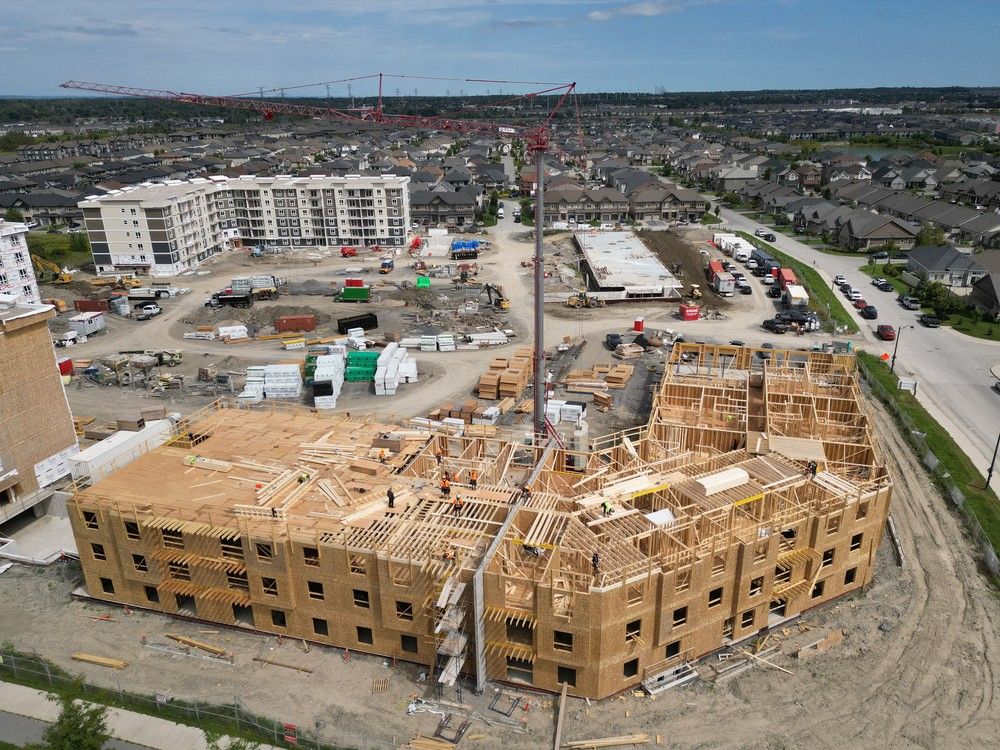Rental Market Trends in Ottawa: Slower Growth and New Challenges
Ottawa’s rental market is experiencing a shift, with potential decreases in advertised rent prices expected in the coming years. This change comes as new housing units are being added to the market and population growth slows down.
According to a recent report from the Canada Mortgage and Housing Corporation (CMHC), the city has seen a slower increase in average advertised rent prices compared to previous years. For two-bedroom purpose-built apartments, the year-over-year increase from the first quarter of 2024 to the first quarter of 2025 was slightly over two per cent, compared to almost four per cent between the same periods in 2023 and 2024. Similarly, for two-bedroom rental condos, the increase was 2.9 per cent, down from 3.8 per cent in the prior year.
This trend contrasts with other major Canadian cities like Calgary, Vancouver, Halifax, and Toronto, where advertised rental prices dropped by between two to eight per cent in the first quarter of 2025 compared to the same period in 2024. However, Edmonton and Montreal also experienced increases in rental prices.
Francis Cortellino, an economist at the CMHC, explained that in cities like Vancouver and Toronto, there has been an influx of rental condos. Many people bought these units during the pandemic, but selling them has become difficult in recent years. As a result, many have been converted into rentals. In Ottawa, while the rental condo market exists, it is not as large as in Toronto, which is why the city hasn’t seen a similar drop in rents.
Competition in Ottawa’s rental market is also influencing the rate of rent increases, according to Cortellino. The City of Ottawa’s housing approvals dashboard shows that 13,662 housing starts were reported between the first quarter of 2023 and the fourth quarter of 2024. Out of these, 8,717 were apartments. Currently, 9,000 rental apartments are under construction, setting a new record for the city.
Cortellino noted that this increase in supply, combined with slower population growth, could lead to lower rental prices in the future. The CMHC report highlights that population growth is expected to slow due to reduced international migration. The federal cap on international student permits has already contributed to rental decreases in provinces like British Columbia and Alberta.
“The next few quarters will see a lot of new supply entering the market,” Cortellino said. “In this environment, we’re seeing rent growth slow down because landlords are competing to attract tenants.”
Affordability Concerns in the Rental Market
Affordability remains a significant concern for renters in Ottawa. According to the CMHC report, residents are spending a larger portion of their income on rent. The average increase in rents for occupied units was about 8.8 per cent year-over-year between the first quarter of 2024 and the first quarter of 2025, compared to 9.4 per cent between the first quarter of 2023 and 2024.
“Rent has increased faster than income in recent years,” Cortellino said. “People are putting more of their income toward rent, and this issue is widespread across Canada.”
Economic uncertainties, including tariffs and the threat of a recession, have also impacted the home reseller market. Fewer people are buying homes in Ottawa due to concerns about job security and rising inflation. This uncertainty has led more individuals to continue renting instead of purchasing property, increasing demand for rental units in the National Capital Region.
Cortellino noted that sales activity in Ottawa had been trending upward before the end of 2024, but this momentum has slowed recently. “Fewer people are buying homes now than a few months ago, and I think this is due to the uncertainty surrounding the future,” he said. “Many people don’t know what will happen with their jobs or income, so they are staying renters rather than trying to access home ownership.”
As the rental market continues to evolve, the balance between supply and demand will play a crucial role in shaping future trends. With new developments and shifting economic conditions, Ottawa’s housing landscape is likely to remain dynamic in the coming years.






